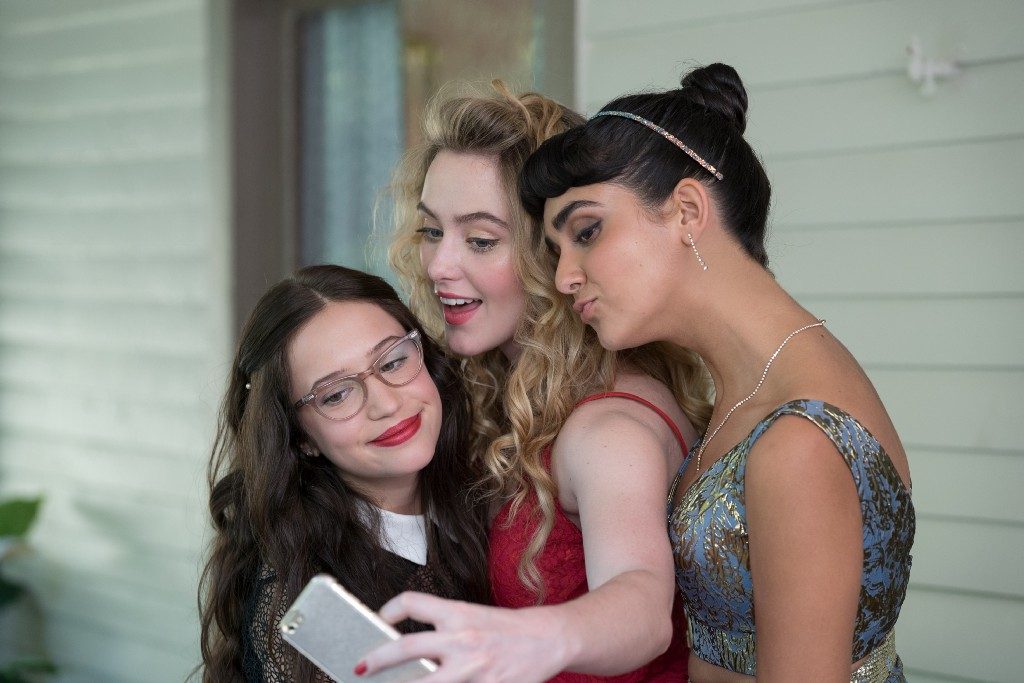Kay Cannon is an Emmy-nominated comedy writer, producer, and director. Her work has been awarded a Peabody and multiple Writers Guild Awards. Her first feature screenplay was the hit “Pitch Perfect,” and she went on to write and co-produce “Pitch Perfect 2” and “Pitch Perfect 3” as well. The creator and showrunner of the Netflix series “Girlboss,” her other television credits include “30 Rock,” “New Girl,” and “Cristela.” “Blockers” is her feature directorial debut.
“Blockers” will premiere at the 2018 SXSW Film Festival on March 10.
W&H: Describe the film in my own words:
KC: Three best girlfriends make a pact to lose their virginity on prom night. Their parents learn about the pact and, for various reasons, make it their mission to stop them.
And although the comedy does get outrageous at times, the movie has an emotional message about parenting and the difficulties of letting go of your children as they step into adulthood.
W&H: What drew you to this story?
KC: The script was super funny. More than that, though, I love that it’s a simple twist on a familiar story. The familiar story being the “loss of one’s virginity” and the twist being that it’s from the female perspective. I love that the daughters are funny, empowered, and have agency over their own bodies.
I was also drawn to telling a story that centered around a parent’s struggle with letting go of their kid. I have a daughter. She’s only four, but I think about how she’ll leave me for college on the daily.
I also jumped at the opportunity to direct an R-rated studio comedy. Women haven’t been offered the chance that often so to say “no” to that felt crazy.
W&H: What do you want people to think about when they are leaving the theater?
KC: My first goal when doing a comedy is to ideally give people the ability to step away from whatever is burdening them and laugh. I hope “Blockers” lets people take a break and not feel the weight of the world pressing down on them. The song that plays over end credits is Lizzo’s “(Feeling) Good As Hell.” I genuinely hope people are feeling good as hell as they walk out those exit doors.
I also hope the movie helps spark real conversations between parents and their kids about sex. We could use more open dialogue about topics that have been pushed aside — particularly with young women and their sexuality.
W&H: What was the biggest challenge in making the film?
KC: It was complicated storytelling wise because there were a lot of characters that had full storylines — eight in total: each parent and their kid, the parents to parents, the kids to kids, and each daughter with their dates. The page count on the script was high but necessary to ensure we were telling each story as best we could. We also did five weeks of night shoots and that was just straight-up bonkers.
Being away from my husband and daughter was particularly painful. It’s a constant struggle to negotiate work and family time.
W&H: How did you get your film funded?
KC: This film was developed with Good Universe and Point Grey. We shopped the script around to several different studios with myself attached to direct and Leslie Mann, John Cena, and Ike Barinholtz to star.
We ultimately partnered at Universal, which has been a home to me since the “Pitch Perfect” movies.
W&H: What does this mean to have your film play at SXSW?
KC: I’m beyond excited! SXSW has a reputation for being progressive and cool. To have “Blockers” play in front of an audience with good taste is very satisfying.
I’m also thrilled to be one of many female filmmakers this year getting a shot to display her work.
W&H: What’s the best and worst advice you’ve received?
KC: Best advice: Trust your instincts.
Worst advice: Say yes to everything.
W&H: What advice do you have for other female directors?
KC: You will get tired. You will get frustrated. You will be treated unfairly and minimized. You will want to quit. Don’t. You can never quit.
W&H: Name your favorite woman directed film. Why?
KC: “A League of Their Own” directed by Penny Marshall. It’s a perfect blend of comedy and heart. It’s also the first time I saw realistic female relationships that weren’t centered around rom-com scenarios. The movie has quotable hard jokes and also makes you cry. I’ve seen it a gazillion times.
W&H: What are your thoughts on the #TimesUp movement and the push for equality in the film business?
KC: It’s wonderful. It’s necessary. It’s overdue. It’s as if we collectively and simultaneously reached this tipping point where we all looked at each other and said, “No. It shouldn’t be this way. Not anymore. We’re done. Pull the rug up off the floor — let’s see what secrets have been hiding under there for all these years, and let’s fix this shit.”







